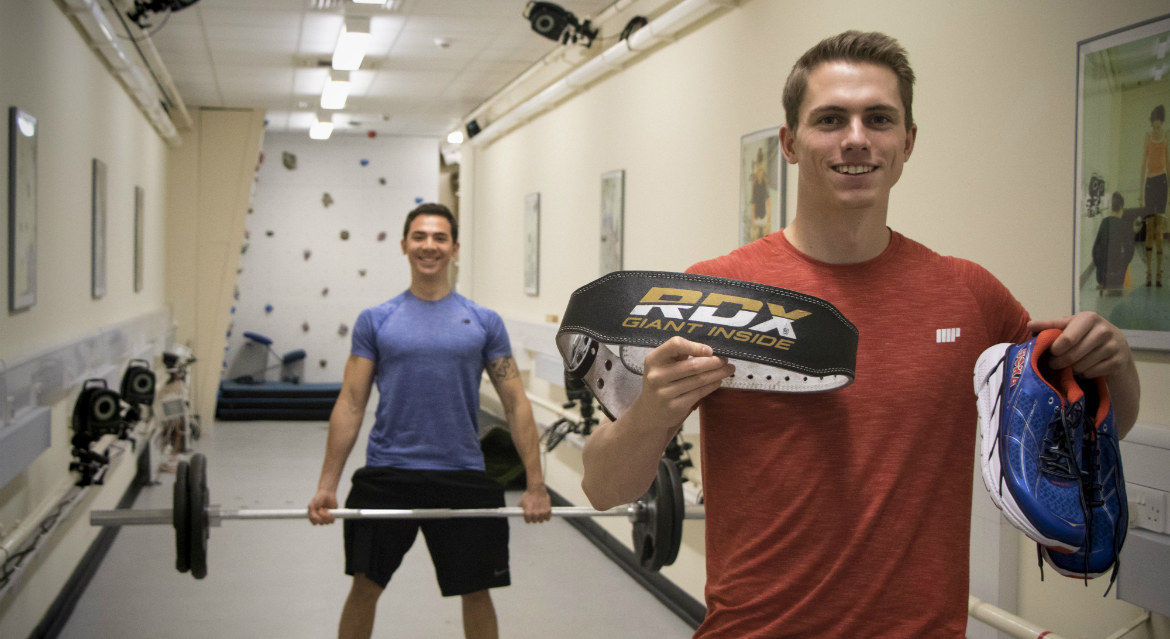Personal best or pointless: weightlifting apparel put on trial
Published On Wed 21 Nov 2018 by Dominic Glasgow

At a time when powerlifting and CrossFit are becoming more mainstream, weightlifting belts and shoes are an increasingly common sight for frequent gym-goers. But whether they actually help weightlifters is the question two students from the University of Dundee are putting to the test.
Medical students Xuan Bahuet and Callum Frew are seeking participants who are familiar with deadlifts, to help the pair see if there is any weight behind the claims that weightlifting belts and shoes help improve lifting form.
Xuan, a fourth-year student looking to push weightlifting belts to their limits, said that despite their long history, with stories of belts with super-human strength appearing in Greek and Norse mythology, there are still unanswered questions regarding just how much they help activate core muscles.
“There’s still a lot of confusion about weightlifting belts, for instance, we still don’t know how much they help or impinge the spine, or whether they reinforce a strong neutral position.
“It’s really important to put the tools we use to lift heavy weights to the test and figure out with certainty if they help core muscle activation or hinder it. It will be fascinating to see if they do really help weightlifters improve their personal best.”
Callum Frew, also a fourth-year medical student, said that weightlifting shoes might be the key to solid stability when lifting.
“I’m looking to test whether footwear or being barefoot affects ankle stability in deadlifts. It’s significant to test bare feet against shoes like Converse, running trainers and weightlifting shoes in order to be sure which is the best basis for powerlifting.”
The pair are looking for 30 participants, male or female, over the age of 18 to help them test the apparel.
The test will require a single session lasting two hours at the Tayside Orthopaedic and Rehabilitation Technology (TORT) Centre at Ninewells, and participants must be comfortable with performing conventional deadlifts at 90% of their 1-repetition maximum.
Those interested in the trial can sign up by emailing: a.bahuet@dundee.ac.uk
For media enquiries contact:
Dominic Glasgow
Media Relations Officer
University of Dundee
Nethergate, Dundee, DD1 4HN
Tel: +44 (0)1382 385131
Email: d.w.glasgow@dundee.ac.uk